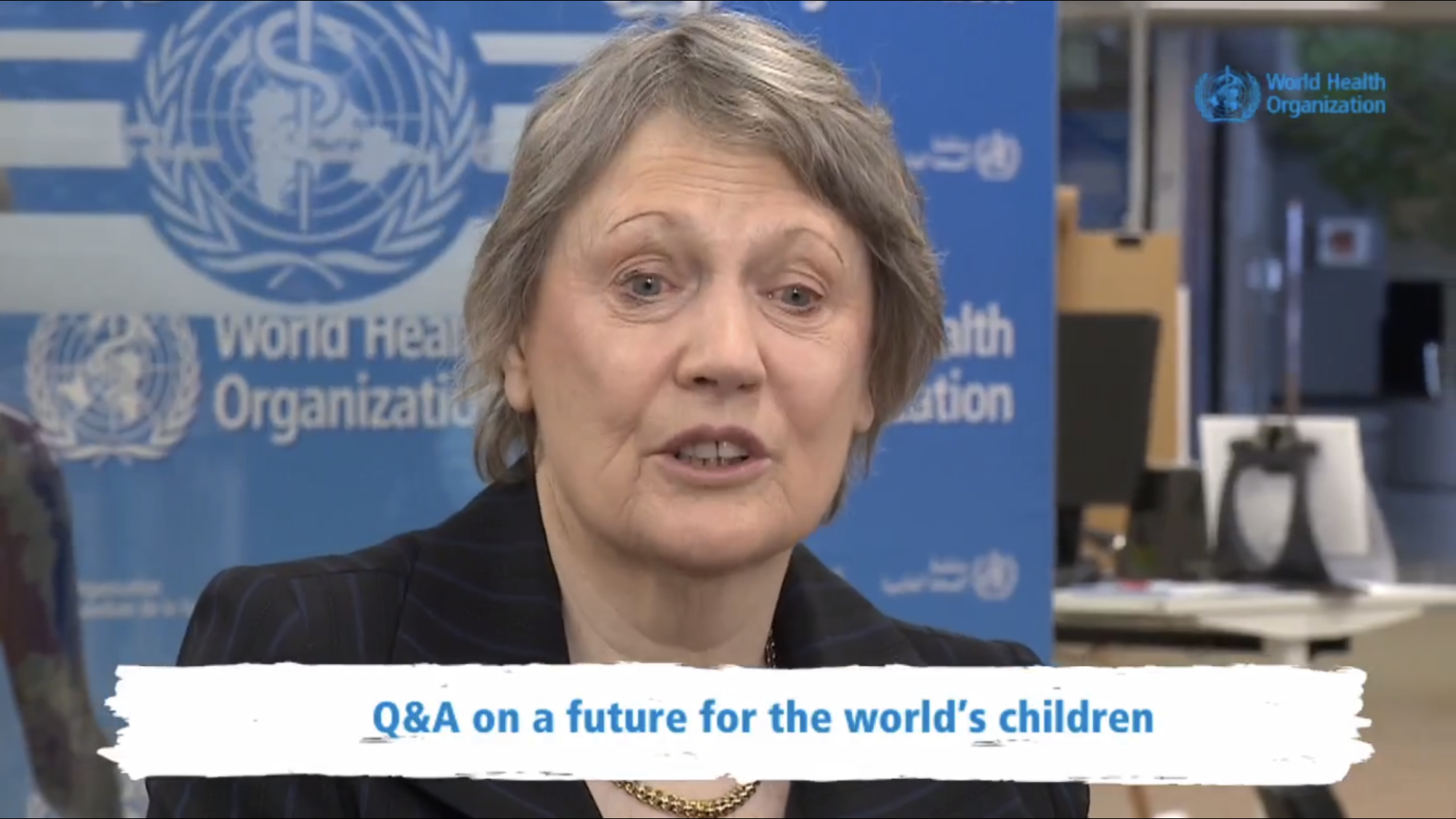It’s a Tough Time to be a Child - Report
Whether the live in wealthy or poor countries, children face significant threats worldwide. Credit: UNICEF/PNG
Being a child in today’s world means inheriting a future with many unknowns brought about by climate change, poor nutrition and aggressive commercial marketing, says a new landmark report.
“No country in world is currently providing conditions for a healthy future for children,” Anthony Costello, Professor of Global Health & Sustainability, Office of the Vice-Provost, University College London, said in a pre-release briefing for journalists earlier this week.
A particularly startling finding is that, whether they live in rich or poor countries, children face significant threats in the future - especially from extreme weather events and overall climate change.
Furthermore, A Future for the World’s Children, which included input from some 40 experts from around the world, singles out wealthier countries for threatening the future of all children through excessive carbon emissions. No country is adequately protecting children’s health, their environment and their futures.
“Despite dramatic improvements in survival, nutrition, and education over recent decades, today’s children face an uncertain future. Climate change, ecological degradation, migrating populations, conflict, pervasive inequalities, and predatory commercial practices threaten the health and future of children in every country,” the report said.
Highlighting alarming data from across 180 countries, the report by the World Health Organization (WHO), UNICEF and the Lancet is a first-of-its-kind global index. Through measures of child survival, wellbeing, sustainability and equity, the index assesses country performance in protecting children’s health, their environments and their futures.
It ranked 180 countries on the likelihood of a child being able to "flourish", focusing on health and wellbeing factors such as education, nutrition and child mortality.
While wealthy countries made out very well on the ‘flourishing’ ranking, they ended up at the bottom of the list on the global sustainability index due to greenhouse gas emissions . For example, Canada ranked 21 on current child flourishing ranking, but a poor 170 on global sustainability list, with per capita carbon emissions more than 210% higher than the sustainability target for 2030.
“Canada ranked 21 on current child flourishing ranking, but a poor 170 on global sustainability list, with per capita carbon emissions more than 210% higher than the sustainability target for 2030. ”
Citing such factors as the recent flash floods across the United Kingdom, droughts across world, extreme weather events, the spread of dengue fever, food insecurity and malnutrition, the report’s authors said that things have actually gone into reverse for children.
Experts says digital devices have made children more prone to aggressive marketing tactics
“Advertising companies are hoovering up vast quantities of data about our children”
In a new “flourishing index” which includes data on child wellbeing and human flourishing from 180 countries, the report listed the Central African Republic, Chad and Somalia at the bottom - and Norway, South Korea and the Netherlands at the top.
However, when authors took per capita CO2 emissions into account, the top countries trail behind: Norway ranked 156, the Republic of Korea 166, and the Netherlands 160. Each of the three emits 210% more CO2 per capita than their 2030 target. The United States of America (USA), Australia, and Saudi Arabia are among the ten worst emitters.
Commercial food, beverage and tobacco companies are harshly criticized in the report: on some countries children are exposed to 30,000 TV advertisements in a year, and more than four alcohol ads-a-day. The biggest threat, they say, comes from social media advertising. Many of the free games distributed to children are produced by advertising companies and in the process they are “hoovering up vast quantities of data about our children,” Costello said. He added that emerging evidence suggests self regulation of the industry has been ineffective.
The report co-chair, former New Zealand Prime Minister Helen Clark, said today: “Clearly our children are under assault from those promoting sugary drinks and fatty foods…But right now we are not seeing enough action.”
Former New Zealand Prime Minister Helen Clark is a co-chair of the report
Asked about the impact of smartphone addiction among children, Costello said the overall situation is worrisome. He said in the UK, children are spending an average of two hours-a-day on their devices, and on weekends three hours-a-day and upwards. “We need more evidence on how harmful and beneficial it is,” he said.
As for the way forwards, the experts said leadership needs to be shown from the very top in all countries and that better coordination between ministries is needed. More public investment is needed in children’s health.
The report’s authors say that evidence on the cost effectiveness of health interventions for children is indisputable.
The recommendations add that emission of greenhouse gasses need to stop and more vigorous targets are required. Aside from strict rules on commercial exploitation of children, young people need to be given a voice in a way which makes politicians respond.


